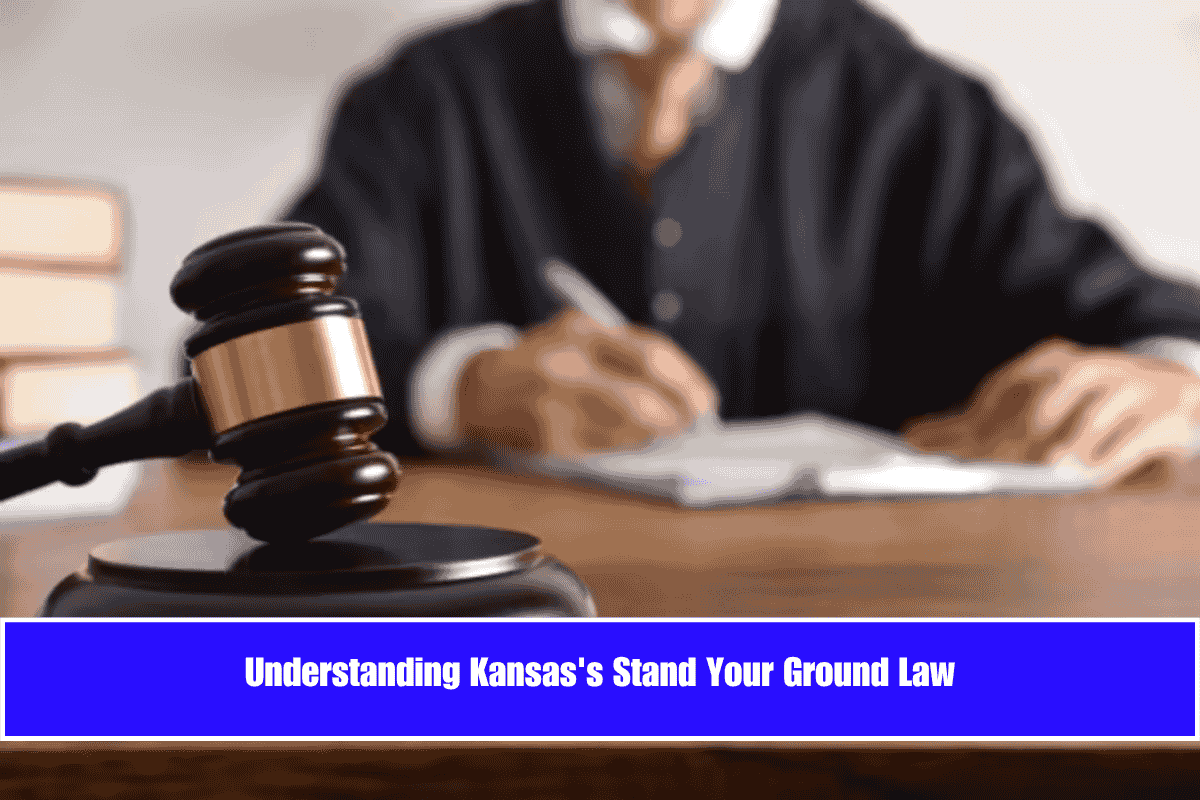Kansas’s Stand Your Ground law allows individuals to use force, including deadly force, in self-defense without a duty to retreat if they are in a place where they have a lawful right to be. This means that if you reasonably believe force is necessary to prevent imminent death or great bodily harm to yourself or another person, you may use that force—even if you could have safely retreated instead.
Key Provisions of Kansas’s Law
- No Duty to Retreat:
Kansas law explicitly states that a person does not have to retreat before using force in self-defense, as long as they are lawfully present at the location. - Reasonable Belief Standard:
The law uses a two-pronged test:- Subjective: The person must actually believe force is necessary.
- Objective: A reasonable person in the same circumstances would also believe force is necessary.
- Immunity from Prosecution:
Kansas statutes provide immunity from criminal prosecution and civil lawsuits for individuals who justifiably use force under the Stand Your Ground law. If the court finds the use of force justified during a pretrial hearing, the case can be dismissed before reaching trial. - Application to Law Enforcement:
The law’s immunity provisions also extend to law enforcement officers, making it more difficult to prosecute officers for use of force, even in controversial cases. - Presumption of Reasonableness:
There is a legal presumption that deadly force is reasonable if someone is unlawfully entering your dwelling or attempting to remove someone from it.
How the Law Works in Practice
- If you use force and claim self-defense, a judge will first determine in a pretrial hearing whether your actions were justified.
- The prosecution must prove probable cause that your use of force was not justified, shifting the burden away from the defendant.
- If justified, you are immune from both criminal charges and civil lawsuits related to the incident.
Controversies and Criticisms
- Studies and advocacy groups have linked Stand Your Ground laws to increases in violence and firearm homicides.
- Critics argue the law can be inconsistently applied and may enable unnecessary escalation of violence, especially in public spaces.
- The immunity provisions for law enforcement have drawn particular scrutiny after high-profile cases where officers avoided prosecution for deaths in custody.
Table: Kansas Stand Your Ground Law
| Feature | Kansas Law Details |
|---|---|
| Duty to Retreat | No |
| Where It Applies | Anywhere you have a lawful right to be |
| Standard for Use of Force | Reasonable belief (subjective + objective) |
| Immunity from Prosecution | Yes, for justified use of force |
| Applies to Law Enforcement | Yes |
| Presumption of Reasonableness | Yes, in home/dwelling defense situations |
Kansas’s Stand Your Ground law provides broad protections for individuals who use force in self-defense, removing the obligation to retreat and granting immunity from prosecution and lawsuits if the force is deemed justified. However, its application—especially regarding law enforcement and public safety—remains a subject of ongoing debate and legal scrutiny.
Sources
[1] http://jonathanwmcconnell.com/2025/04/15/kansas-stand-your-ground-laws-criminal-defense-attorney-wichita-ks/
[2] https://www.aclukansas.org/sites/default/files/field_documents/hts_stand_your_ground.pdf
[3] https://en.wikipedia.org/wiki/Stand-your-ground_law
[4] https://giffords.org/lawcenter/state-laws/stand-your-ground-in-kansas/
[5] https://www.prnewswire.com/news-releases/what-are-stand-your-ground-laws–criminal-defense-attorney-wichita-ks-302445163.html












